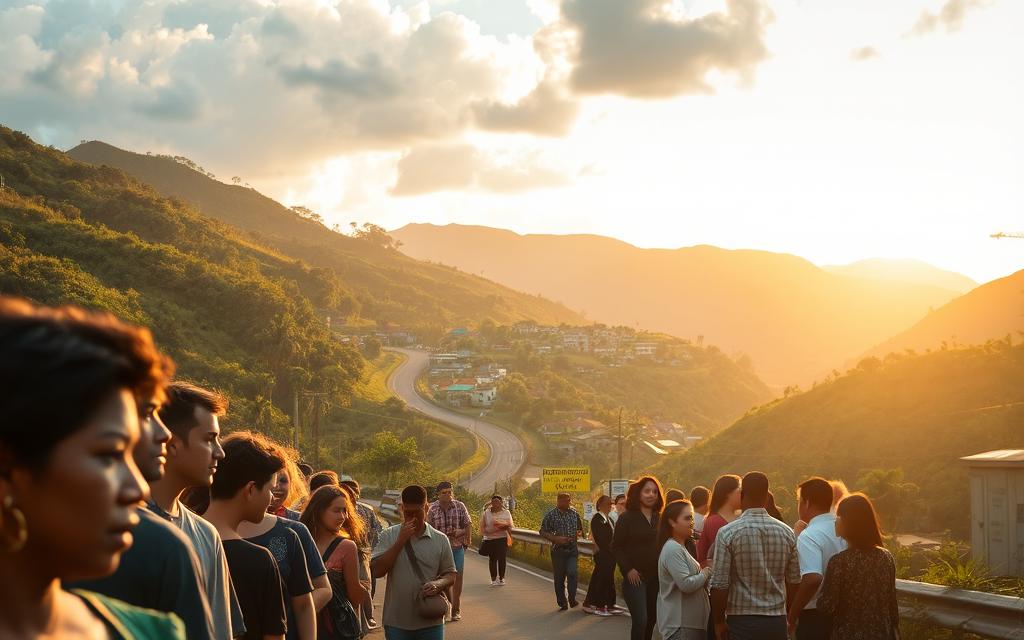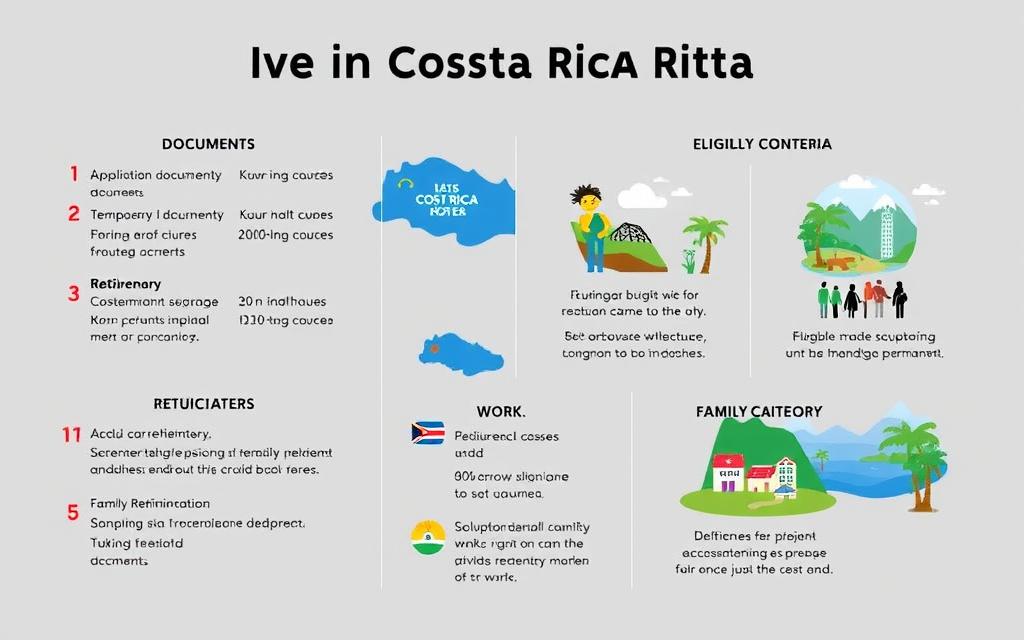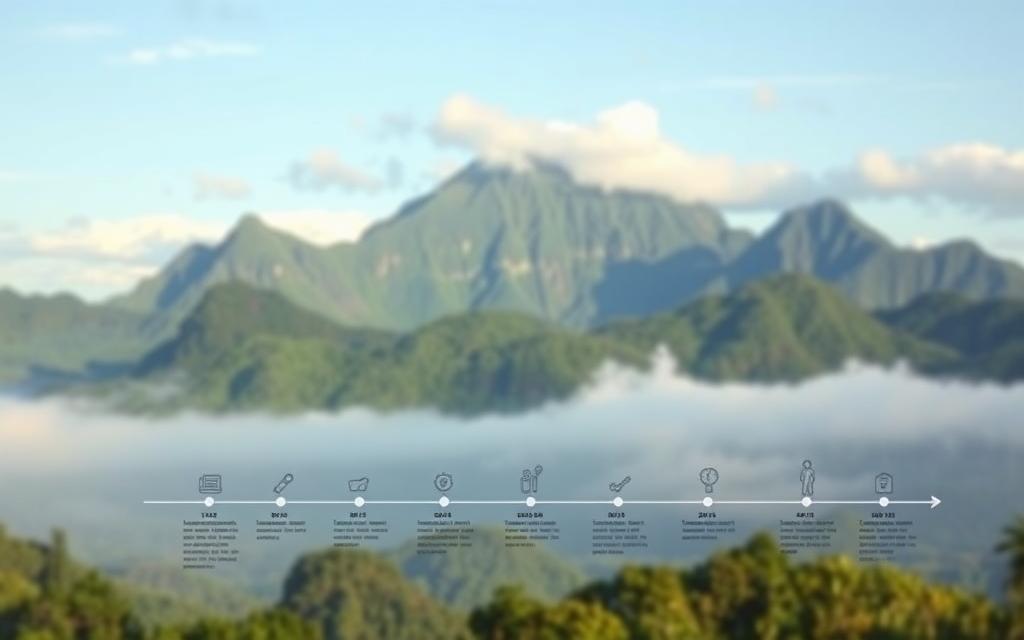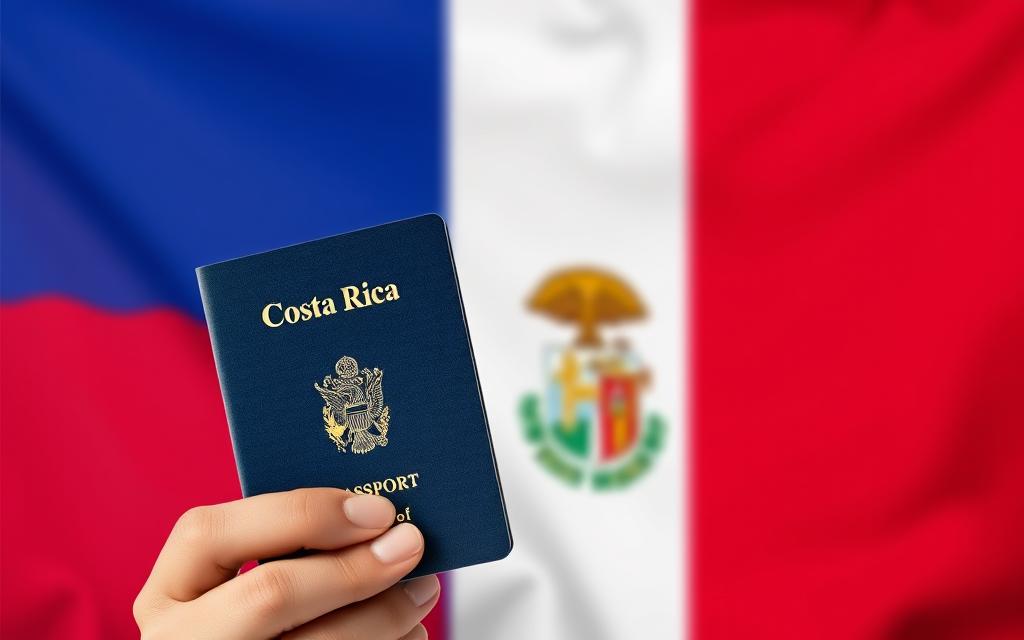How Long Does it Take to Get Costa Rica Citizenship?

Costa Rica has emerged as a highly sought-after destination for individuals and families seeking a better quality of life. With its natural beauty, mild climate, and rich culture, it's no wonder that over 45,000 people choose to make it their new home every year. As the happiest and most sustainable country in the world, according to the Happy Planet Index, Costa Rica is an attractive option for those looking to settle permanently or temporarily.
For those considering citizenship, understanding the residency requirements and naturalization process is crucial. The journey to becoming a Costa Rican citizen typically takes several years, depending on individual circumstances and eligibility categories. In this guide, we'll walk you through the complete timeline and process for obtaining Costa Rica citizenship, covering all the necessary requirements and potential challenges along the way.
Understanding Costa Rica's Immigration System

Understanding the intricacies of Costa Rica's immigration system is crucial for those seeking citizenship. Costa Rica's immigration system is based on residency, making it the foundation for the citizenship process.
Residency as the Foundation for Citizenship
To become a citizen of Costa Rica, you must first establish residency in the country. There are two types of residency: temporary and permanent. Temporary residency is given to individuals who plan to live in Costa Rica for a longer period, typically up to 2 years, and can be renewed for another 2 years. After maintaining temporary residency for 3 years, applicants can then apply for permanent residency.
Different Types of Residency Options
Costa Rica offers various residency options tailored to different needs and circumstances. These include rentista residency for those with stable income, investment residency for investors, and permanent residency for those wishing to live in Costa Rica indefinitely. Each category has specific requirements that may affect the timeline to citizenship. Understanding these options is crucial for navigating the immigration process effectively.
Residency Requirements: The First Step Toward Citizenship
Before applying for Costa Rica citizenship, it's essential to navigate the country's residency requirements. Securing residency is the foundational step for anyone aiming to call Costa Rica home.

Temporary Residency Options
Temporary residency allows individuals to live in Costa Rica for up to two years, making it an excellent option for those testing the waters before committing long-term. Categories include retirees (Pensionado), individuals with stable income (Rentista), investors (Inversionista), and those with family connections to Costa Ricans.
Permanent Residency Requirements
Permanent residency is available after three years of temporary residency and offers more stability. To qualify, applicants must meet specific financial requirements, such as proving a minimum monthly income from pensions, investments, or other sources.
Essential Documentation for Residency Applications
Applying for residency requires meticulous preparation. Key documents include a valid passport, birth certificate, police records from your home country, proof of income, and marriage certificates if applicable. All documents must be properly authenticated through apostille or legalization and translated into Spanish by an official translator in Costa Rica. For more information on dual citizenship requirements, visit Jaros CR.
The Path from Residency to Citizenship

Transitioning from residency to citizenship in Costa Rica involves several critical steps. To become a citizen, one must first fulfill the residency requirements and then apply for citizenship at the appropriate time.
Maintaining Legal Residency Status
Maintaining legal residency status in Costa Rica requires compliance with several ongoing obligations. Residents must make regular payments to CAJA, the Costa Rican healthcare system, and maintain physical presence in the country. It's essential to visit Costa Rica at least once per year to maintain status, and extended absences may require special permission from immigration authorities.
When to Begin the Citizenship Application
The timing of your citizenship application is crucial. Applying too early may result in rejection, while waiting too long might unnecessarily delay your naturalization. Most applicants should begin preparing for citizenship approximately six months before reaching their eligibility date, typically after seven years of legal residency. Understanding the legal distinctions between temporary residency, permanent residency, and citizenship will help navigate this transition successfully.
How Long Does it Take to Get Costa Rica Citizenship?

The path to Costa Rican citizenship varies significantly depending on individual circumstances. The journey typically begins with securing residency, followed by a waiting period before one can apply for citizenship.
Standard Timeline: The 7-Year Path
For most applicants, the standard path to Costa Rican citizenship requires maintaining legal residency for 7 years. After meeting this requirement, the naturalization application process typically takes an additional 6 to 18 months. Thus, the total timeline from first arriving in Costa Rica to obtaining citizenship usually ranges from 7 to 9 years.
Expedited Options: Citizenship by Marriage
For those married to a Costa Rican citizen, the residency requirement is significantly reduced to just 2 years. This expedited process makes it possible for spouses of Costa Ricans to obtain citizenship in as little as 2 to 3 years after arriving in the country. We recommend checking the latest requirements on the official immigration resources for the most up-to-date information.
Special Considerations for Central American and Spanish Citizens
Citizens of Central American countries and Spain have special considerations that can shorten their path to citizenship. They are eligible to apply for citizenship after only 5 years of legal residency. This reflects the strong historical and cultural ties between these countries and Costa Rica. As a result, the total timeline for these applicants typically ranges from 5 to 7 years.
It's worth noting that various factors can affect these timelines, including application backlogs, documentation issues, and changes in immigration policies. Recent processing trends at the Costa Rican immigration department may also impact your citizenship timeline. Therefore, it's essential to stay informed and plan accordingly.
Costa Rica Citizenship Requirements

To become a citizen of Costa Rica, applicants must meet several key eligibility criteria. These requirements are designed to ensure that new citizens are well-integrated into Costa Rican society and are committed to contributing positively.
Legal and Age Requirements
Applicants must have maintained valid residency status for a specified period, typically 7 years, though this can be reduced to 2 years if married to a Costa Rican or 5 years for citizens of certain countries. Additionally, applicants must be at least 18 years old to apply independently.
Language Proficiency and Cultural Knowledge
Language proficiency in Spanish is mandatory, requiring applicants to demonstrate the ability to read, write, and speak Spanish at a functional level. Applicants must also pass an examination on Costa Rican history, culture, and civic knowledge, unless they are over 65 years of age, in which case they are exempt.
Clean Criminal Record Requirements
A clean criminal record from both Costa Rica and the applicant's home country is essential. Background checks are typically valid for only 3 months, emphasizing the need for timely application submission.
The Citizenship Application Process

Navigating the citizenship application process in Costa Rica can be complex, but understanding the steps involved can simplify the journey. To apply for citizenship, several key steps must be undertaken, including gathering necessary documents, submitting an application, and participating in a citizenship test and interview.
Required Documentation
To begin the application process, applicants must gather several critical documents. These include a birth certificate, a criminal background check from their home country, proof of legal residency in Costa Rica, a marriage certificate if applicable, and evidence of financial solvency. All documents from the applicant's home country must be properly authenticated and translated into Spanish by an official Costa Rican translator.
Submission and Processing Timeline
The submission process involves filing the application with the Tribunal Supremo de Elecciones (Supreme Electoral Tribunal), paying the required fees, and receiving a case number for tracking. The processing timeline typically ranges from 10 to 18 months from submission to approval, although this can vary based on application volume and complexity.
Citizenship Test and Interview
As part of the application process, applicants are required to take a citizenship test that evaluates their Spanish language proficiency and knowledge of Costa Rican history, culture, and civic institutions. Applicants over 65 are exempt from this test. Additionally, an interview is conducted in Spanish to assess the applicant's integration into Costa Rican society and their reasons for seeking citizenship.
Common Challenges and How to Overcome Them

Pursuing Costa Rican citizenship can be a complex process, fraught with challenges that require careful navigation. Applicants must be prepared to address various issues that can arise during the application process.
Documentation Issues
One of the most significant challenges is documentation issues, including improper authentication, name inconsistencies, or expired documents. To avoid these issues, it's crucial to ensure that all documents are properly apostilled or legalized and remain valid throughout the application period. For instance, a dual citizenship application may require additional documentation.
Language Barrier Challenges
Language barriers can also pose significant challenges, as Spanish proficiency is required for both the citizenship test and interview. To overcome this, applicants can take formal Spanish classes, work with a tutor, or use language learning apps to improve their skills.
Tips for a Smoother Application Process
To navigate the application process more efficiently, applicants should start collecting documents early, maintain copies of everything, and consider working with experienced immigration professionals. By being proactive and prepared, applicants can minimize delays and ensure a smoother application process for Costa Rican citizenship.
Benefits of Costa Rican Citizenship
Obtaining Costa Rican citizenship opens up a multitude of benefits that enhance one's quality of life. As we explore these advantages, it becomes clear why the process of becoming a citizen is worthwhile.
Voting Rights and Political Participation
Costa Rican citizens gain full voting rights, allowing them to participate in local and national elections. This enables citizens to have a voice in the country's political future, shaping the direction of Costa Rica.
Travel Benefits with a Costa Rican Passport
A Costa Rican passport provides visa-free or visa-on-arrival access to approximately 150 countries and territories. This makes international travel significantly easier, opening up new opportunities for travel and exploration.
Access to Government Services and Programs
Citizens have unrestricted access to Costa Rica's universal healthcare system and all government services. This includes eligibility for government scholarships and loans, as well as the ability to work in government positions and regulated professions.
Professional Immigration Services in Costa Rica
Navigating Costa Rica's immigration system can be complex, making professional immigration services invaluable. The process involves various legal and administrative steps, and having expert guidance can significantly simplify the journey to citizenship.

When to Hire an Immigration Attorney
Complex cases, language barriers, or unfamiliarity with Costa Rican legal procedures are scenarios where hiring an immigration attorney can be particularly beneficial. They help navigate documentation requirements and represent applicants in official proceedings.
Choosing the Right Immigration Assistance
When selecting immigration assistance, look for professionals with specific experience in citizenship applications. Verify their credentials, check references, and read reviews. JAROS CR is an example of a professional service that guides applicants through the entire citizenship process.
Conclusion
In summary, the process of becoming a Costa Rican citizen involves several key steps, from securing residency to applying for naturalization. The journey typically takes 7-9 years, although expedited options exist for certain applicants. To successfully navigate this process, it's essential to understand the requirements, including language proficiency, cultural knowledge, and a clean criminal record. For more detailed information on the timeline and requirements, visit Jaros CR. With patience and the right guidance, you can enjoy the benefits of Costa Rican citizenship.


